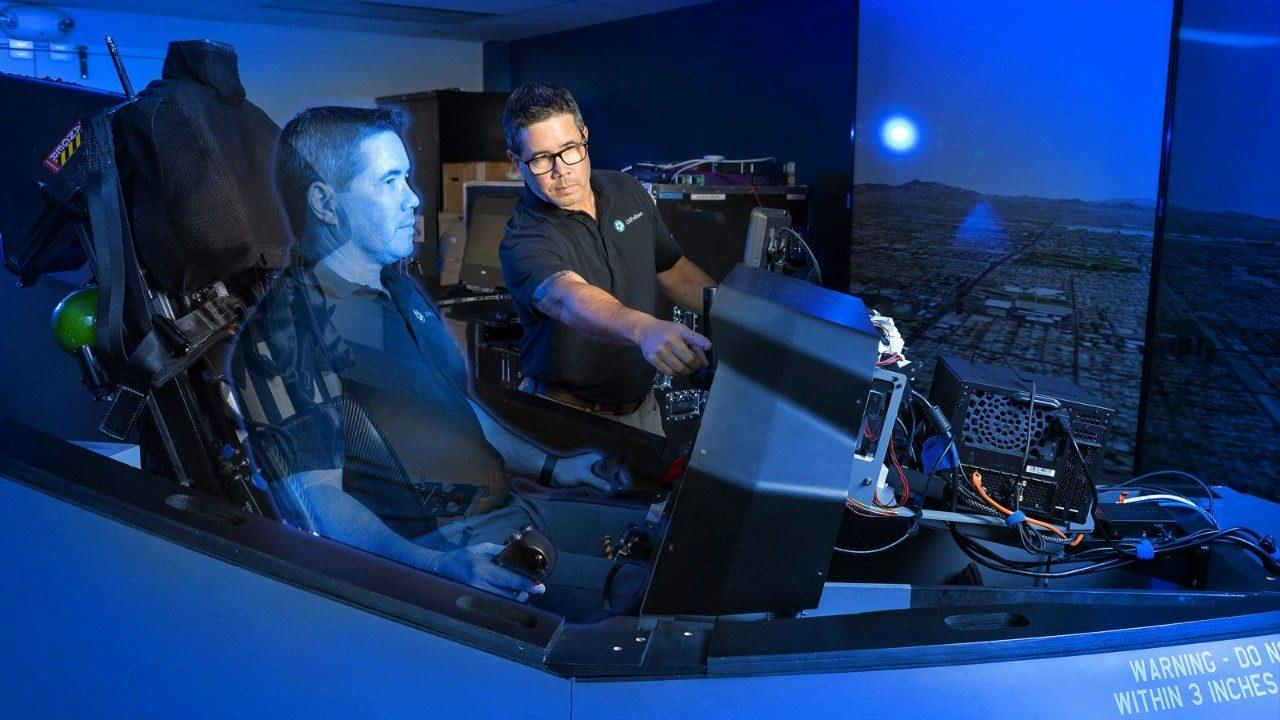أيروجيني — مساعدك الذكي للطيران.
الرائج الآن
Categories
Artificial Intelligence Reshapes Aviation Training

Artificial Intelligence Reshapes Aviation Training
At the Asia Pacific Aviation Training Summit (APATS) 2025 in Singapore, Cedric Paillard, CEO of The Airline Pilot Club, introduced a pioneering AI-driven system designed to revolutionize the evaluation of flight instructors and enhance training quality assurance. The system, named iORCA (Instructor Observe, Record, Classify, Assess), utilizes artificial intelligence to provide data-driven insights into instructor performance, addressing persistent challenges within aviation training.
Addressing Gaps in Instructor Evaluation
Historically, airlines and flight schools have faced difficulties in effectively evaluating training records. Paillard highlighted the issue, noting that evaluations often consisted of generic scores such as threes and fours, accompanied by minimal explanatory feedback. This lack of detailed, actionable information has complicated critical decisions regarding instructor selection and pilot promotions. The challenge is particularly acute as the aviation industry increasingly adopts Evidence-Based Training (EBT) and Competency-Based Training and Assessment (CBTA) frameworks, both of which require comprehensive data analysis to ensure efficacy.
AI-Powered Simplicity and Accuracy
The iORCA system distinguishes itself through its straightforward and accessible approach. Training sessions are captured using basic audio and video equipment, frequently just a mobile phone, with the AI processing this raw data directly, thereby eliminating the need for manual transcription. The system evaluates instructors across four core competencies and approximately 40 observable behaviors, employing the International Air Transport Association (IATA) framework as its grading standard.
Validation studies compared iORCA’s performance against human evaluators in three distinct scenarios: live examiners during training, observers reviewing recorded sessions, and the AI system itself. Findings revealed that human examiners identified only 40 to 60 percent of observable behaviors during live sessions, whereas iORCA achieved an accuracy rate of 90 to 95 percent, significantly surpassing traditional evaluation methods.
Immediate and Objective Feedback
One of the system’s principal advantages lies in its capacity to deliver immediate, objective feedback. Each training session transforms into a mentoring opportunity, with instructors receiving candid and precise assessments that surpass the subjectivity often inherent in human evaluations. This capability fosters continuous professional development and enables management to calibrate instructor performance with greater precision.
Implementation Challenges and Industry Response
Despite its transformative potential, the integration of AI systems like iORCA into aviation training presents several challenges. Adoption necessitates substantial infrastructure upgrades and seamless integration with existing training programs. Ensuring interoperability between new AI tools and legacy systems remains a complex undertaking, compounded by the need to manage the extensive volumes of data generated.
Moreover, comprehensive training is essential not only for instructors and pilots but also for management and regulatory bodies to bridge skills gaps and facilitate effective AI adoption. Industry reactions have been mixed; while some traditional training providers express skepticism, competitors are accelerating their own AI-driven initiatives in recognition of the technology’s promise.
The Future of Aviation Training
As artificial intelligence continues to reshape aviation training, the sector is moving away from subjective assessments toward data-driven, evidence-based evaluations. Although challenges persist, the introduction of systems such as iORCA represents a significant advancement toward more transparent, consistent, and effective instructor development, potentially establishing a new global standard for the industry.

Emirates Unveils Cabin Design for New Boeing 777X

Eighteen Years On, the Airbus A380 Remains Central to a $34 Billion Airline

How a boom in luxury airline seats is slowing down jet deliveries

Navitaire Outage Attributed to Planned Maintenance

DigiYatra Debuts Outside Aviation at India AI Impact Summit

Vietnam Orders Strengthen Boeing’s Commercial Outlook

Airbus Signals Uncertainty Over Future A400M Orders

JobsOhio Awards $2 Million Grant to Hartzell Propeller for Innovation Center

Collins Aerospace Tests Sidekick Autonomy Software on YFQ-42A for U.S. Air Force CCA Program

How the Airbus A350-1000 Compares to the Boeing 777
